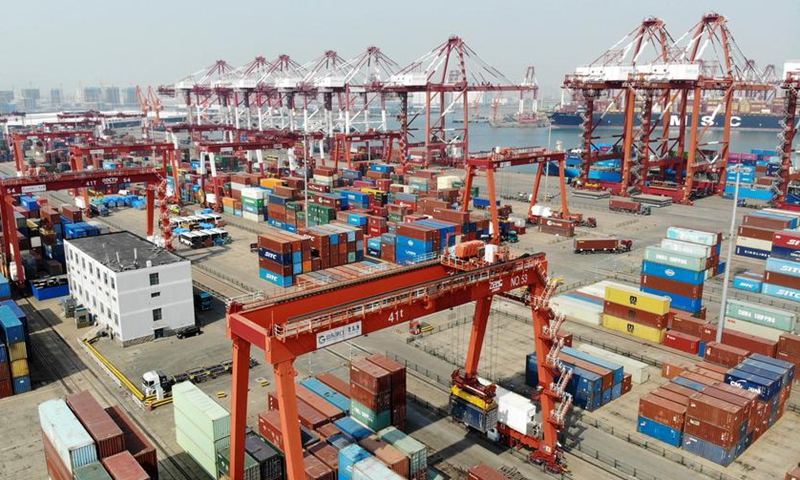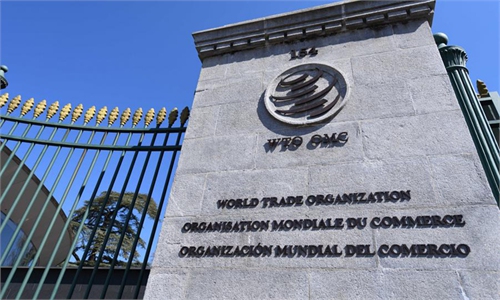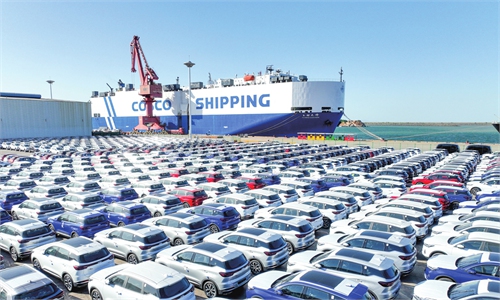
A drone photo shows a view of Qingdao Port in east China's Shandong Province, March 13, 2024.Photo: Xinhua
The China Import Development Report 2024, released on Sunday, highlights the significant contribution of China's imports to economic growth internationally. The report emphasizes that China's proactive efforts to expand imports are boosting global economic momentum.
In 2023, China's imports totaled $2,556.76 billion, maintaining its status as the world's second-largest importer for the 15th consecutive year and accounting for 10.6 percent of global imports. Private enterprises account for 41 percent of total imports, with both their share and import value increasing.
The diversification of import sources has advanced, with China sourcing goods from 246 countries and regions. As domestic demand has gradually recovered, imports of commodities have expanded steadily, showcasing a resilient and adaptive import landscape.
"As a major country, China is actively expanding imports and embedding itself in the global value chain, while promoting the construction of an open world economic system," Wei Hao, chief editor of the report, and vice dean and professor at the Business School at Beijing Normal University, told the Global Times on Sunday.
The report indicates that China's initiative to expand imports will reduce the trade surplus with its partners and foster mutual benefits and a win-win situation. This expansion not only helps ease trade tensions but also counters the "China Threat Theory" narratives from the West.
"The expansion of imports will help boost global businesses' confidence in entering China's vast market, creating significant demand and opportunities for development," Wei said.
From 2013 to 2023, imports from Belt and Road Initiative (BRI) countries and regions rose from $842.8 billion to $1,242.7 billion, averaging 3.96 percent annual growth.
Countries and regions involved in the BRI now account for about 45 percent of China's imports.
Among European countries, from 2001 to 2023, China's imports from Germany surged from $13.8 billion to $106.2 billion, an average annual growth rate of 9.73 percent. Imports from France also grew significantly, rising from $4.1 billion to $37.3 billion, with an average annual growth rate of 10.55 percent.
China's share of French exports jumped from 1.02 percent in 2001 to 4.16 percent in 2023, elevating China from the 15th-largest to the seventh-largest market for French goods, according to the report.
"Imports are a key indicator of a country's economic development and resource allocation capabilities. The import of intermediate goods is crucial in countering the decoupling of global supply chains," Hu Jiangyun, a researcher in the Development Research Center of the State Council, said during a meeting for the release of the report.
China should actively leverage imports to manage international bilateral relations and reduce trade friction, promoting sustainable economic growth, Hu added.



